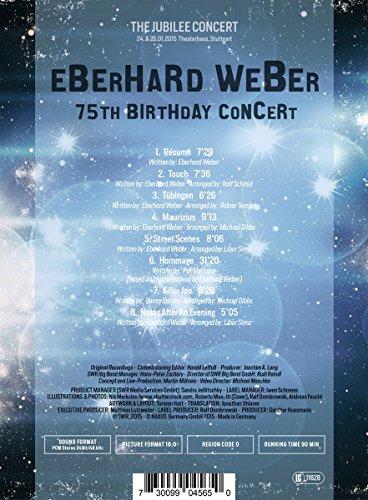It was a quiet revolution. After Eberhard Weber accompanied colleagues from Jean-Luc Ponty to Gary Burton in the 1960s and then devoted himself to jazz rock in fusion bands such as the Dave Pike Set, the Stuttgart bassist further developed his instrument with idiosyncratic aesthetics. It got a fifth string and lost its body in favor of electrification, which made it possible to stand and sing for a long time.
Weber’s sound and style became unmistakable, and his work as part of the Jan Garbarek Quartet was instrumental in shaping the sound of European jazz. Since 2007, however, he has not been able to play as a result of a stroke, so his friends had to come up with something special to allow him to participate in the music of a tribute concert in January 2015 on the occasion of his 75th birthday in the Stuttgart Theaterhaus was awarded the honorary award of the state of Baden-Württemberg for his life’s work.
Pat Metheny appeared with a suitcase full of notes. Now an orchestra like the SWR Big Band is used to reading complicated arrangements from the sheet. Only in the case of the homage to Eberhard Weber, something else was added. Because the idea was to let the artist, who can no longer play bass, take part in the action on stage. Metheny, who as a young musician had worked several times in bands with Weber, had gone through the archives and had collected video recordings of solos Weber had played over the decades. Around this material he grouped his own ideas, the guest soloists and the big band as a creative foundation.
Scott Colley was assigned the role of the bass playing alter ego, companions like vibraphonist Gary Burton and drummer Danny Gottlieb were integrated into the line-up. On a screen in the back of the ensemble, Weber appeared virtually in video form of his archive material. It was a marathon of concentration for everyone, but it turned out to be a success. And by the way, it was an experiment for Metheny too, because the guitarist had not previously written for a big band, just as Weber saw his music arranged for a jazz orchestra for the first time.
But it shouldn’t stop there. The Hommage suite was the most elaborate part of the gala evening. In addition, however, further compositions by Weber were placed around the video live performance, which had been prepared for the SWR Big Band by the arrangers Michael Gibbs, Rainer Tempel, Ralf Schmid and Libor ima. The creative team achieved a clever combination of retrospect and perspective. Eberhard Weber was present as a historical and real personality, on the one hand as a powerful visionary with a cantable tone and melodious phrasing, who also knew how to comment on the event in a charming and gnarled manner. But he was also honored as an artist whose singularity only became apparent to some through this transformation into another form.
Ralf Dombrowski















